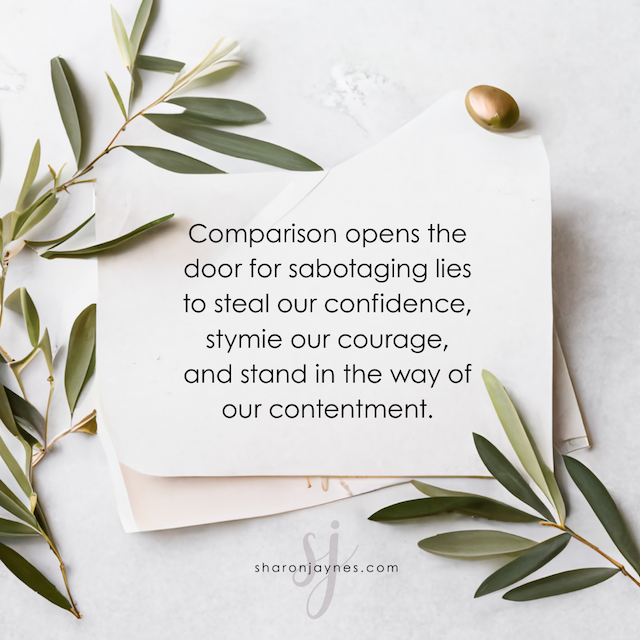No Place Like Home
It is easy for Christians to lose focus in our present, politically charged atmosphere. This series, first published in September 2016, is a timely reminder of where our passions and longings should be ultimately directed. –ed.
A pamphlet I once read related the following anecdote from the life of John Quincy Adams:
One day in his 80th year . . . he was approached by a friend who said, “And how is John Quincy Adams today?”
The former President of the United States replied graciously, “Thank you, John Quincy Adams is well, sir, quite well, I thank you. But the house in which he lives at present is becoming dilapidated. It is tottering upon its foundations. Time and the seasons have nearly destroyed it. Its roof is pretty well worn out, its walls are much shattered, and it trembles with every wind. The old tenement is becoming almost uninhabitable, and I think John Quincy Adams will have to move out of it soon; but he himself is quite well, sir, quite well.” And with this the venerable statesman, leaning heavily upon his cane, moved slowly down the street. [1]
This fallen form we inhabit is frail and failing. And yet so much of our time and energy is invested in protecting and preserving our bodies. While we need to be good stewards of the health the Lord has given us, we must remember that the “buildings” we currently occupy were not built to last forever. An important part of cultivating a heavenly perspective is looking forward to the physical realities of heaven.
Paul says that when the earthly tabernacle of our body is gone, we will receive a new building from God, eternal in the heavens. “In this house we groan, longing to be clothed with our dwelling from heaven” (2 Corinthian 5:2). Romans 8:23 says that in heaven even our failing bodies will be redeemed—glorified. Christ Himself “will transform the body of our humble state into conformity with the body of His glory, by the exertion of the power that He has even to subject all things to Himself” (Philippians 3:21). Our groaning will be ended when we are finally clothed with a heavenly body, with all the same amazing properties of Christ’s resurrection body.
A glorified body alone would be good reason to fix all our hopes and affections on heaven, wouldn’t it? My dear friend Joni Eareckson Tada knows this as well as anyone. Her earthly body was paralyzed from the shoulders down when she dived into shallow water as a teenager. In recent years she has waged a battle against cancer. As long as I’ve known her, she has had her heart set on heaven. It shows in her conversation, her songs, her radio messages, and her artwork. Often it seems as if talking with her draws one to the very edge of heaven, where we can see in. Joni explains this in her book on the subject:
I still can hardly believe it. I, with shriveled, bent fingers, atrophied muscles, gnarled knees, and no feeling from the shoulders down, will one day have a new body, light, bright, and clothed in righteousness—powerful and dazzling. . . .
It’s easy for me to “be joyful in hope,” as it says in Romans 12:12, and that’s exactly what I’ve been doing for the past twenty-odd years. My assurance of heaven is so alive that I’ve been making dates with friends to do all sorts of fun things once we get our new bodies. . . . I don’t take these appointments lightly. I’m convinced these things will really happen. [2]
Whether or not the apostle Paul made appointments with people as he looked ahead to heaven, Scripture does not say. But clearly he had that very same kind of vivid expectation as he waited for heaven. Look again at 2 Corinthians 5:1-4.
For we know that if the earthly tent which is our house is torn down, we have a building from God, a house not made with hands, eternal in the heavens. For indeed in this house we groan, longing to be clothed with our dwelling from heaven, inasmuch as we, having put it on, will not be found naked. For indeed while we are in this tent, we groan, being burdened, because we do not want to be unclothed but to be clothed, so that what is mortal will be swallowed up by life.
In this body, we groan because we are burdened by sin, sickness, sorrow, and death. Yet we don’t want to be unclothed. In other words, we have no ambition to become disembodied spirits. That’s not what we’re yearning for. We want both our spirits and our bodies to enter the presence of God. And that is God’s plan, too.
Some people have the notion that heaven is wholly ethereal, spiritual, and unreal. They envision it as a wispy, intangible existence in a dreamlike spiritual dimension. That is not the biblical conception of heaven. In heaven we will have real bodies—changed, glorified, made like Christ’s resurrection body (Philippians 3:21)—bodies more solid than our current state, because they will not be subject to the effects of aging, injury, illness, or death.
For this perishable must put on the imperishable, and this mortal must put on immortality. But when this perishable will have put on the imperishable, and this mortal will have put on immortality, then will come about the saying that is written, “death is swallowed up in victory.” (1 Corinthians 15:53-54)
And when I get my glorified knees I already have an appointment to go for a long run with Joni Tada.
Paul says, “He who prepared us for this very purpose is God, who gave to us the Spirit as a pledge” (2 Corinthians 5:5). The Greek word translated as “pledge” (or “guarantee” in the ESV) is arrabōn, the same word Paul used in Ephesians 1:14, also referring to the Holy Spirit. In modern Greek a form of this ancient word is used to signify an engagement ring. In New Testament times it usually referred to a down payment or first installment on a debt—earnest money. So, the Holy Spirit is a token of God’s pledge to us that even our bodies will be made new and imperishable in the glory of heaven.
Paul goes on to apply this truth in very practical terms:
Therefore, being always of good courage, and knowing that while we are at home in the body we are absent from the Lord—for we walk by faith, not by sight—we are of good courage, I say, and prefer rather to be absent from the body and to be at home with the Lord. (2 Corinthians 5:6-8)
This world held no fascination for Paul. He longed for the world to come.
Do you find it difficult to say honestly that those verses express the deepest desires of your heart? There is a tendency for most of us to hold tightly to this world because it is all that we know. It is familiar to us. All our dearest relationships are built here. We too easily think of it as home. So we become captive to this life. But notice that Paul says he would rather be “at home” with the Lord. That is precisely what the Greek expression in the original text signifies. It is a form of the verb endēmeo, “to be at home.” We are most truly “at home” only when we are finally with the Lord. Paul understood this. And the knowledge that he belonged in heaven was the very thing that helped him endure the struggles of this life.
We too should long to be clothed with our heavenly form. We should look forward to being absent from the body and present with the Lord. We should become more preoccupied with the glories of eternity than we are with either the attractions or afflictions of today.






